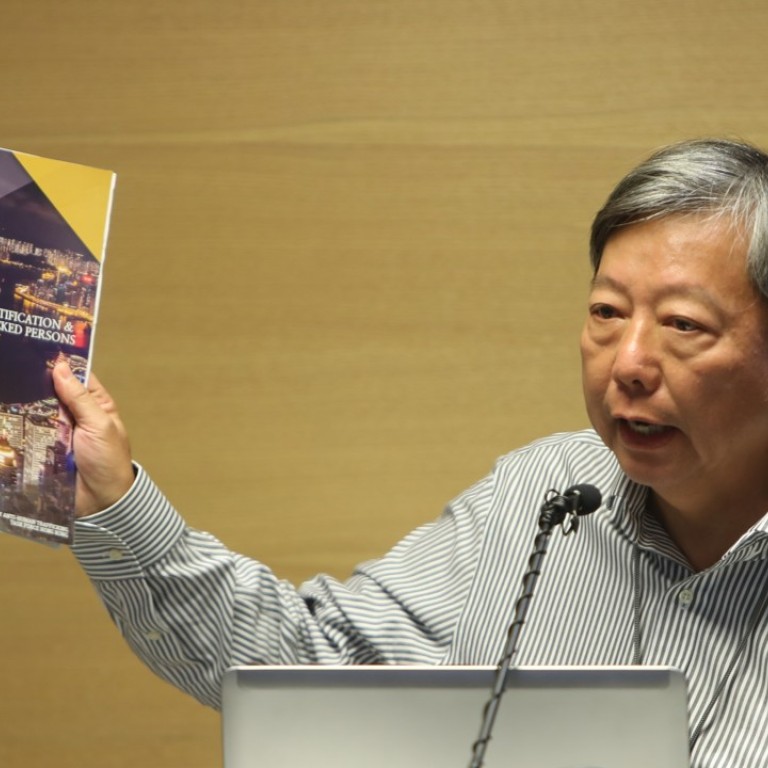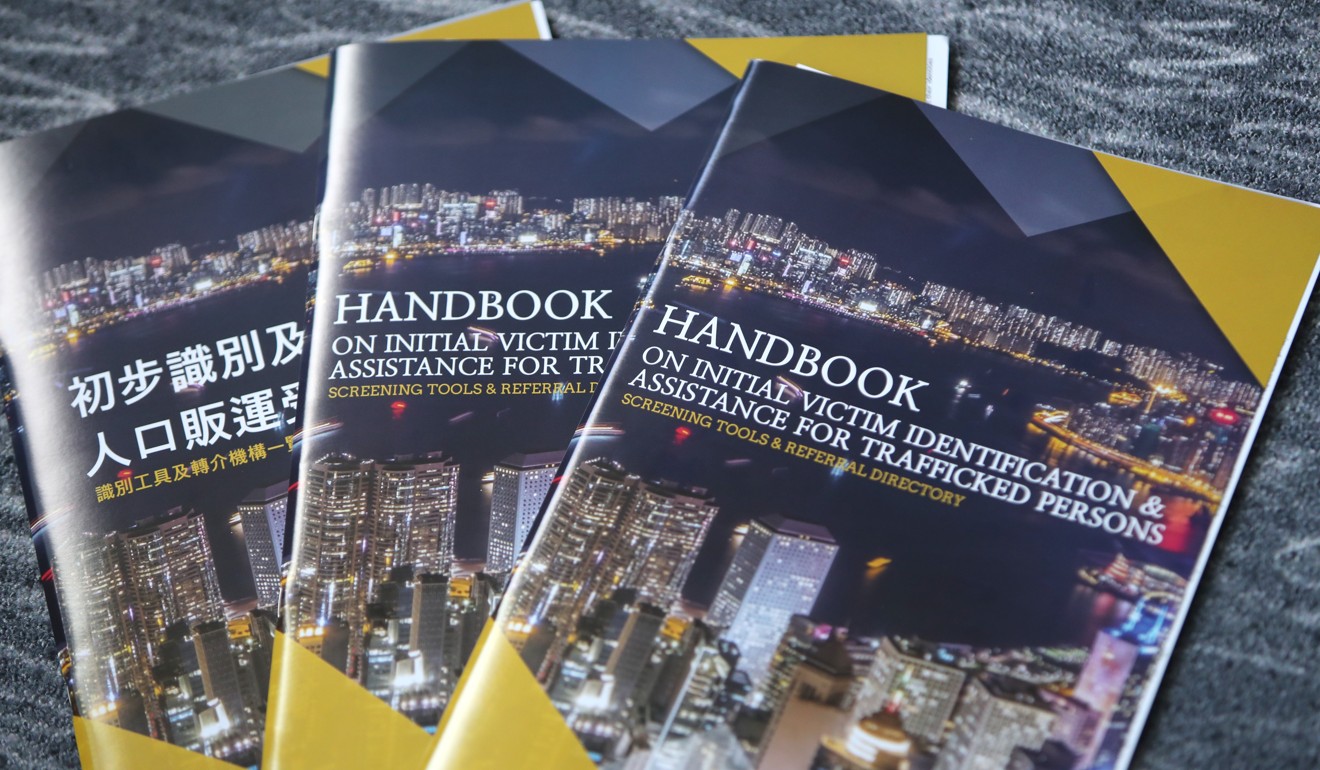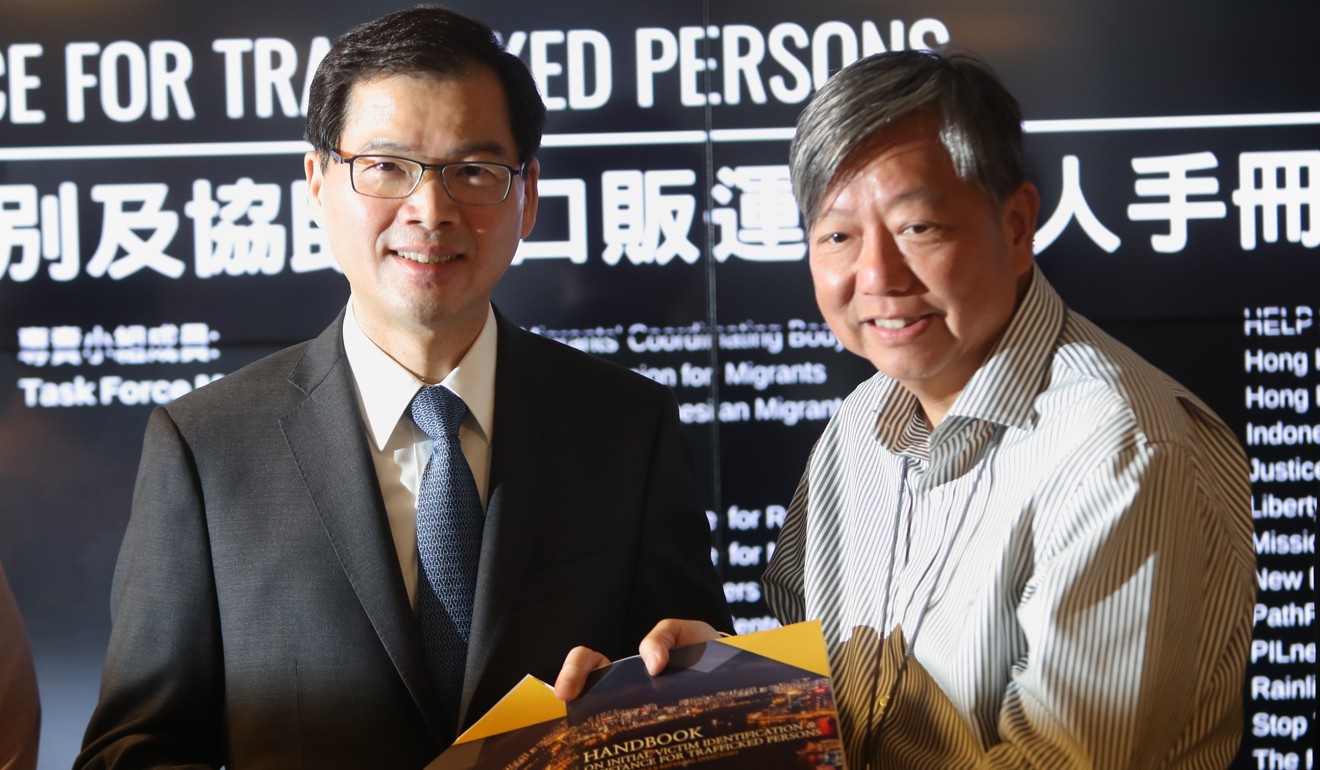
Hong Kong group identifies more than 60 human trafficking cases in city over past year
Civil society group uses questionnaire to establish city’s first figure on the crime, which provides ‘evidence’ that problem exists
More than 60 human trafficking cases have been identified in Hong Kong over the past year, according to a civil society umbrella group that derived the city’s first such figure using a questionnaire it developed.
The Civil Society Anti-Human Trafficking Task Force, which is made up of 27 civil society groups, used a list of questions in guidebook it published this year to identify 63 of 1,037 suspected reports of human trafficking they received from August last year to June.
“It’s actually quite high – it’s 6 per cent,” group member and former lawmaker Lee Cheuk-yan said on Monday. “Imagine that figure applied to 300,000 [domestic foreign workers in the city] that would come up to 1,800 victims.”
Hong Kong human-trafficking law could be a regional leader – if it protects victims
Of the 63 cases, 59 involved labour exploitation, two victims were forced into prostitution, one case was forced marriage and one involved both sexual and labour exploitation.
Seventy per cent of the victims were holders of domestic helper visas and 73 per cent were women. Indonesia and India had the highest number of victims, 24 and 18, respectively.

Hong Kong officials denounced the report as “criticisms not founded in facts”.
Legislator and lawyers push for bill against human trafficking in Hong Kong
There is no official data from the government or human rights groups on victims in Hong Kong, where there is no specific law against human trafficking.
While the city launched an action plan in March to crack down on human trafficking, officials ruled out introducing anti-human trafficking laws, saying the city was equipped with at least 49 pieces of legislation to combat related crimes.
Nurul Qoiriah, head of the Hong Kong office for the UN’s International Organisation for Migration, said the 63 cases identified by the group were “evidence” of a problem in the city.
“The Hong Kong government has kept denying it. Now we have the cases, the names, so here is the evidence,” she said.
‘I was forced to sell my body in a Hong Kong bar’: a Filipino’s experience
Maylin Harwick, founder of member group Harmony Baptist Church, said the standardised questionnaires were an aid for smaller NGOs and victims to raise the right questions.
With consent of the victims, questionnaires will be shared to other NGOs or lawyers to prevent victims from having to repeat answers in multiple interviews.
Harwick said she hoped domestic helpers could use the guidebook to identify the problem and raise the awareness among their peers more efficiently than NGOs.

Lee, who is also general secretary of Hong Kong Confederation of Trade Unions, urged the government to provide support to human trafficking victims as they need a source of income before leaving employers who exploit them. He also said the city needed a dedicated law to combat human trafficking.
Under Secretary for Security Sonny Au Chi-kwong stressed the city already has a system for combating human trafficking. After an extended screening mechanism was launched by police last year, nine victims had been identified while the number of vulnerable people screened increased from 2,515 in 2016 to 4,710 last year.

